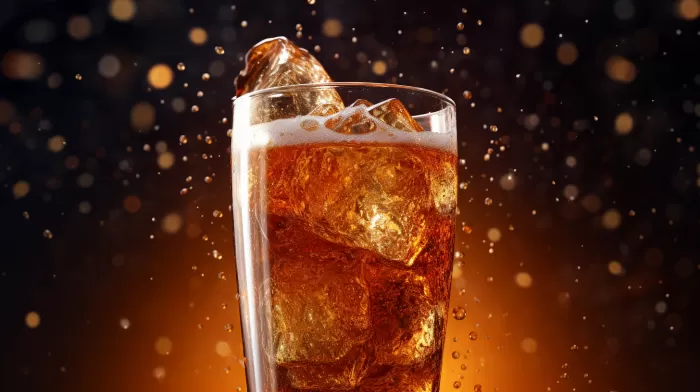You might want to think twice before popping open that can of soda. Researchers have uncovered startling evidence that the carbonation in soft drinks can wreak havoc on your overall health. Not only has carbonation been linked to weight gain, but it may also increase your risk for developing an eating disorder or type 2 diabetes. But how can bubbles be so harmful? The answer lies in the way carbonation messes with our brain’s ability to detect sweetness, making it difficult for us to know when we’ve had enough sugar.
The Carbonation Conundrum: Sweet or Not?
When you take a sip of a carbonated drink, you might think that you’re just enjoying a sweet and fizzy treat. But the bubbles in your drink are doing more than just tickling your taste buds – they’re interfering with your brain’s ability to recognize what’s really sweet and what’s not. This makes it incredibly difficult for you to know when you’ve consumed enough sugar, leading to a higher risk of weight gain and obesity.
In one study, scientists used functional magnetic resonance imaging (fMRI) to observe changes in regional brain activity as participants consumed naturally or artificially sweetened carbonated beverages. The results were staggering – the bubbles in the drinks confused the brain when it came to detecting sweetness. It turns out that carbonation blurs our brain’s ability to distinguish between artificial sweeteners and sugar, a skill that is essential for regulating our sweet cravings and overall sugar consumption.
Stubborn Sugar Cravings: Unable to Beat the Sweets
Simply put, the carbonation in soft drinks impairs our brain’s ability to tell us when we’ve had enough sweets. This can have several negative consequences. For instance, if we’re unable to sense the sweetness in what we eat or drink, our body will continue craving sugary foods even after we’ve had plenty. As a result, we tend to overeat, which can contribute to weight gain, eating disorders, and metabolic issues that could lead to diabetes.
Don’t Be Fooled by Artificial Sweeteners
You might think that diet sodas would be a safe alternative, but artificial sweeteners are just as harmful to your health. Carbonated beverages sweetened with artificial sweeteners still damage the brain’s ability to detect sweetness, leading to increased sugar cravings and overeating. While these drinks might have fewer calories or be sugar-free, their carbonation still confuses the brain about sweetness, making them potentially harmful in the long run.
In addition, studies have linked the consumption of diet sodas to weight gain and an increased risk of metabolic syndrome, a group of conditions that increase your risk for heart disease, stroke, and diabetes. According to an article published by The Mayo Clinic, people who drink diet soda regularly might be even more likely to develop metabolic syndrome than those who don’t.
Say Goodbye to Stubborn Bubbles and Hello to a Healthier You
The evidence is clear: carbonated soft drinks do more harm than good on our bodies and brains. To minimize the harm, take a step in the right direction by replacing fizzy beverages with healthier alternatives. Consider drinking water infused with fruit, herbal tea, or natural fruit juices to avoid the carbonation and protect your brain from the harmful effects of soda bubbles. Overall, cutting out carbonated beverages can be a simple yet effective way to not only improve your health but also protect it for years to come.
In conclusion, the seemingly harmless bubbles in carbonated soft drinks can have serious effects on your health by impairing your brain’s ability to detect sweetness, leading to overeating, weight gain, and a host of other health issues. Even diet sodas aren’t a safe alternative, thanks to their artificial sweeteners. By making a conscious effort to ditch the fizzy drinks and opt for healthier options, you’ll be well on your way to a healthier, happier you.



